-
 +27 +2
+27 +2Linux Mint signs a partnership with Mozilla – The Linux Mint Blog
Linux Mint signed a new partnership with Mozilla.
-
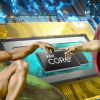 +22 +1
+22 +1I hope to God that Intel’s new Core i9 processor crushes Apple’s M1 Max
In 2020, Apple managed the impossible: it made chipsets sexy. People actually talked about processors. But the release of the M1 did more than get public attention, it also shook up the whole computing industry. The chip helped Apple’s Macbooks deliver incredibleperformance and battery life — outstripping its competitors along the way.
-
 +26 +1
+26 +1A program for cheaper internet for low-income Americans launches today
Eligible households can take up to $75 off their bills
-
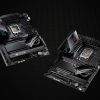 +20 +3
+20 +3Asus admits fault, recalls motherboards catching on fire
Recently, there have been widespread reports of the Asus ROG Maximus Z690 motherboard burning up. Asus didn’t officially acknowledge the problem until December 29. The company acknowledged the problem and underlying causes and announced a recall for the faulty motherboards.
-
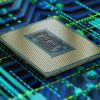 +23 +1
+23 +1Intel Core i7-12800H Outperforms Apple M1 Max in Benchmark
Intel’s Alder Lake Intel Core i7-12800H processor continues to impress, with the CPU showcasing impressive performance levels when put up against Apple’s M1 Max chip. An insight into the CPU initially emerged in November when it was tested in a Gigabyte Aorus 15 YE4 laptop. The Alder Lake chip performed extremely well when compared to Intel’s Core i7-11800H and AMD Ryzen 9 5900HX processors.
-
 +24 +3
+24 +3Apple M1 Max MacBook Pro vs. $50,000 AMD Ryzen Threadripper Pro Server
There are a few reasons why publications such as The Verge called the 2021 MacBook Pro models with Apple’s new M1 Pro and M1 Max chips “the most powerful laptops” they’ve ever tested. In a recently published blog post, the folks at DataBase as a Service (DBaaS) provider Unum pit an M1 Max-equipped 16″ 2021 MacBook Pro with 64 GB of RAM, against an Intel-powered 16″ 2019 MacBook Pro with 16 GB of RAM and a $50,000 USD server with an AMD Threadripper Pro 3995WX and a whopping 1 TB of RAM, through a series of memory-heavy workloads.
-
 +16 +1
+16 +1Apple Silicon Roadmap Based on 18-Month Upgrade Cycle, Claims Chinese Report
Apple plans to update its Apple silicon chips every 18 months, compared to the annual upgrade cycle of the iPhone and Apple Watch, according to a new report from the Taiwanese Commercial Times.
-
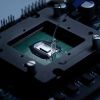 +26 +3
+26 +3Optical Chip Promises 350x Speedup Over RTX 3080 in Some Algorithms
Lightelligence, a Boston-based photonics company, revealed the world's first small form-factor, photonics-based computing device, meaning it uses light to perform compute operations. The company claims the unit is "hundreds of times faster than a typical computing unit, such as NVIDIA RTX 3080." 350 times faster, to be exact, but that only applies to certain types of applications.
-
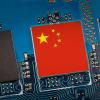 +20 +3
+20 +3China's road to homegrown chip glory looks to be going for a RISC-V future
The RISC-V Summit is over - here's what you need to know
-
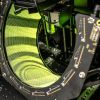 +18 +2
+18 +2How remouldable computer hardware is speeding up science
Michael Reiser is, as he puts it, “fanatical about timing”. A neuroscientist at the Howard Hughes Medical Institute’s Janelia Research Campus in Ashburn, Virginia, Reiser studies fly vision. Some of his experiments involve placing flies in an immersive virtual-reality arena and seamlessly redrawing the scene while tracking how the insects respond.
-
 +28 +9
+28 +9Quantum processor swapped in for a neural network
It's become increasingly clear that quantum computers won't have a single moment when they become clearly superior to classical hardware. Instead, we're likely to see them becoming useful for a narrow set of problems and then gradually expand out from there to an increasing range of computations. The question obviously becomes one of where the utility will be seen first.
-
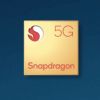 +22 +5
+22 +5Samsung to use Qualcomm’s chips for near half of 2022 smartphones and tablets
Samsung is planning to use Qualcomm’s chipsets for near half of the smartphones and tablets it launches in 2022, TheElec has learned.According to Samsung’s smartphone shipment plan for 2022 seen by TheElec, the tech giant is planning to launch a total of 64 models of smartphones and tablets.
-
 +26 +3
+26 +3The Long Search for a Brain Computer Interface That Speaks Your Mind
The trick is to use data from the brain to synthesize speech in real time so users can practice and the machine can learn. New BCI systems are getting there.
-
 +24 +5
+24 +5Faulty DRM breaks dozens of games on Intel’s Alder Lake CPUs
Longtime Ars readers probably remember some of the many cases in which overly onerous DRM prevented game owners from playing their legitimate purchases. We're seeing that situation play out again today, this time thanks to how some DRM systems interact with the unique features of Intel's 12th-generation "Alder Lake" CPUs.
-
 +25 +4
+25 +4A New Quantum Computing Method Is 2,500 Percent More Efficient
A new method for quantum computing algorithms achieved an unprecedented efficiency that's 2,500% more effective! And it could change everything.
-
 +16 +5
+16 +5Chip shortages may wipe out holiday PC sales, Intel warns
Intel says that ongoing chip shortages mean that PC vendors expect to prioritize more expensive models during the holiday shopping season.
-
 +16 +1
+16 +1Intel CEO blames predecessors for manufacturing woes
When it comes to Intel's recent manufacturing problems, Intel CEO Pat Gelsinger places the blame squarely on his predecessors — many of whom he notes were not engineers deeply steeped in chip technology, as he is.
-
 +21 +2
+21 +2The unexpected benefits of playing video games at work
Could regular gaming breaks be the key to maximizing productivity? One of the few silver linings of the pandemic is that it has thrown into stark relief the problems with working culture that have gone unaddressed for decades.
-
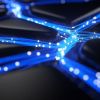 +15 +2
+15 +2A Computer Breakthrough Helps Solve a Complex Math Problem 1 Million Times Faster
Researchers have discovered a new technique that can make reservoir computing a million times faster on specific tasks.
-
 +16 +3
+16 +3AI’s Islamophobia problem
Language models such as GPT-3 have been hailed for their potential to enhance our creativity. Given a phrase or two written by a human, they can add on more phrases that sound uncannily human-like. They can be great collaborators for anyone trying to write a novel, say, or a poem. GPT-3 is a smart and poetic AI. Unfortunately, it also says terrible things about Muslims.
Submit a link
Start a discussion




















